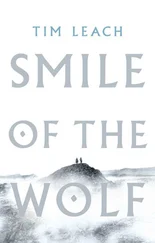‘You spoke of bravery,’ said the Emperor. ‘I would like to admire your bravery, in saying what you have done. I would like to, but I cannot. It wearies me, and I do not like to be wearied.’ A hard stare then, at Caius, the Legate. ‘Surprise and reckless chances are for younger men.’
‘Yes, Caesar.’
And the Emperor seemed to age before him – the skin almost translucent, the lips grey, the head lolling loosely. As frightening a thing as Lucius had ever seen, but the others must have seen it many times before, for they gave no sign of alarm. Perhaps it was this that had almost killed the Emperor – not sickness or poison, but the weight of one murderous decision after another. Perhaps there was a limit to the taking and the sparing of lives, before the gods grew jealous and gave a warning of their own.
The Emperor leaned back, closed his eyes, gave the slightest gesture of the hand. The audience was over.
Five steps out of the tent, each one lighter than the one before it. Lucius half expected to step into the air at the last, as the Praetorians gathered about him once more. A firm hand placed against the back of his neck, perhaps in case he were tempted to look like a hero escaping the Underworld, or a man who seeks to undo what he has done.
No more honours or glory for him. Only the worst of postings, rotten cohorts to command until he was spitted on some barbarian’s spear, far away from Rome. All that he had fought for undone to save the barbarians across the water.
But perhaps it was finally true that he understood the Sarmatians – that reckless courage they had, to wager everything they had with no care for the future.
And the joy of them, too. That joy of one who has gambled so, and won.
*
When first Kai woke, he thought himself amongst the dead.
Still and silent figures around him on the ground. The smell of rot, the grey flesh. Darkness, too, and for a moment the choking feeling of being buried alive. Then someone moved close by – the restless stirring of one gripped with fever. Another man rolled over, slowly and with great effort, and when Kai saw the cast of the skin, the particular hollowness of the eyes, the lolling tongue, he understood where he was. He was not amongst the dead, but the dying. A tent filled with sickened men.
All but one. For a man sat on the ground beside him, cross-legged, head nodding with sleep. Hair plastered to the scalp with old sweat, the skin about the eyes dark and heavy, but these were the signs of weariness, not sickness. A little light upon the golden hair of the beard, sword-calloused palms turned towards Kai. And a smile upon the man’s lips, when he saw that Kai was awake.
‘Lucius,’ said Kai, and the Roman nodded. Then: ‘Water,’ the word cracking and breaking even as he said it.
A skin of water opened and passed, the sweet clear taste of it flowing down his throat. And when Kai handed it back, he was surprised to find that his hand was steady.
‘Where are we?’ Kai asked.
‘Not far from the Danubius. The Danu, as you call it.’
‘You have spoken to the Emperor?’
‘I have.’
‘You have done it, then?’
‘We have done it,’ Lucius answered.
‘And you have suffered for it?’
‘No more than I am willing to suffer.’ A shrug of the shoulders. ‘But yes, I did. Or rather, I shall.’
‘We go back now?’
‘We do, as soon as we can. You are well enough to travel?’
‘I am.’ But it was a hollow voice that Kai spoke with – no strength to speak of the shame that gnawed at him, and no strength to hide it, either.
Another man might have mocked or goaded him. Or ignored the pain, or picked at Kai with words until he had all of the wrong answers. But Lucius simply waited. Hands clasped together, eyes soft. The posture of a man willing to wait forever and still receive no answer. A strength in stillness, that willingness to wait for the world to change.
At last, Kai said: ‘What do your people think of fear?’
‘All men are afraid,’ Lucius answered. ‘Except for the mad.’
‘Do you think it a shameful thing?’
‘Not of itself. It depends on what it makes you do.’ Lucius hesitated. ‘What it is that you are afraid of?’
‘I am afraid every time I see a Roman. The banners, the weapons, the shields. I see them, and I cannot think.’
‘It has always been this way?’
‘No, only since the battle on the ice. Some curse. Or a message from the gods, that there is no use in fighting your people.’
Lucius did not answer for a time. ‘I told my commander that you had been struck down by the fear of Rome. I did not know that it was true.’ He looked at his hands. ‘And I had wondered why you turned your horse away, when we fought each other.’
Kai closed his eyes. He had hoped that Lucius had forgotten, that the madness of battle and the pain of his wound had driven the memory away. But he had carried that knowledge silently with him all winter, the knowledge that Kai was a coward.
A hand was on his arm then, and Kai flinched at the touch. But once more, the waiting. And when at last he looked at him, Lucius said: ‘You have nothing to fear from me.’
‘I know.’
‘And soon you will be away from here. We go across the water once more.’
‘But that is the worst of it.’ The words were easy now, a wound bleeding freely. ‘I did not know I could be more afraid of anything than the Romans. But now I am more afraid to go back than to stay here.’
‘Your sister? The others?’
‘Yes. I am afraid to see them again.’
‘Little chance of us running into them in open country.’
‘Oh, I think that the gods do not mean to let me loose so easily.’
Lucius said nothing – once more, the waiting. Somewhere close, the sound of drum and horn calling a changing of the guard, and one of the sick men tried to answer it. Eyes mad with fever, and legs withered away to almost nothing, yet still he tried to stand, until an orderly hurried over and ushered him back to the ground.
‘You can stay here,’ said Lucius at last. ‘A hostage. A prisoner. A guest. Whatever you want to call it. I told them that you are a prince amongst your people, a man they should keep alive.’ He glanced around the tent. ‘Here, at least, there are few signs of Rome. I will not make you go back across the water if you have not the heart for it.’
‘Fear is not a shameful thing, only what it makes you do.’ Kai echoed back the words. ‘No. You shall need one of our people with you. And I will not send Bahadur or Arite.’
Lucius nodded. ‘I knew an old centurion,’ he said, ‘discharged to a veteran’s village. Lost his leg to an axe on the banks of the Rhenus. That unseen leg haunted him day and night, he was almost mad with that pain.’
‘And you mean to tell me how he was healed.’
‘They showed it to him in a mirror. All things reversed. He reached out and touched that missing leg, and the pain went away.’
‘A good story,’ said Kai. ‘But I have seen Sarmatians thus afflicted. And our answer is simpler. We put them to death.’
‘That is another way. But why not try the mirror first?’ Lucius hesitated. Then he said: ‘You have crossed the water on a hopeless task already. You were brave then. And I only ask you to do again what you have done before.’
A lightness then, a warmth like wine drunk beside a fire. Kai said: ‘They will most likely kill us, you know.’
‘I know. But I died once already, upon your sister’s spear. I do not wish to do it again, but I will if I have to.’
‘And I rose from the dead once before, after the battle on the ice.’ And Kai felt peace settling upon him then, the feeling of all things in their right place. He stood, suddenly impatient, stirred by that beautiful restlessness that comes before a journey.
Читать дальше
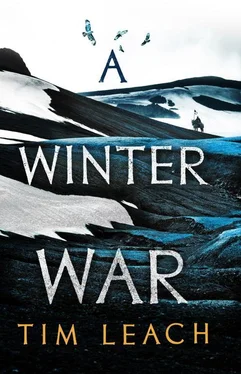
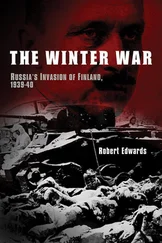

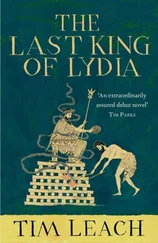

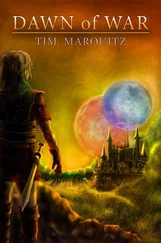

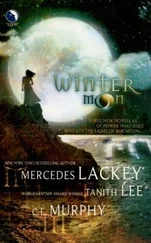
![Стюарт Слейд - Воины зимы [Winter Warriors ru]](/books/401383/styuart-slejd-voiny-zimy-winter-warriors-ru-thumb.webp)
